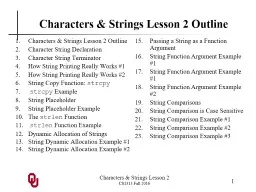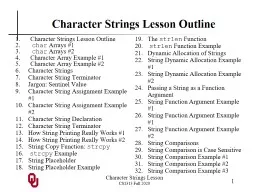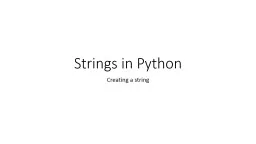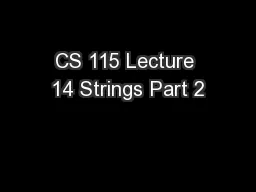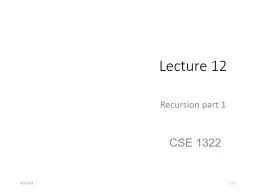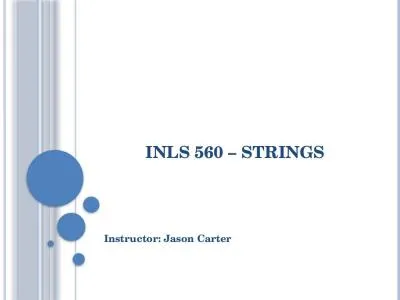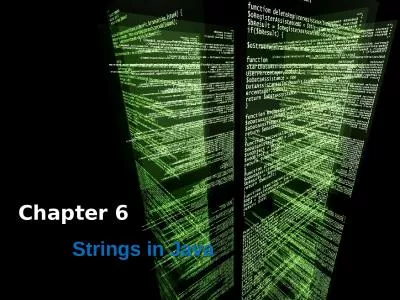PPT-Lecture 10 Strings CSE 1322 4/26/2018 10- 1 String class A string is a
Author : liane-varnes | Published Date : 2019-11-01
Lecture 10 Strings CSE 1322 4262018 10 1 String class A string is a sequence of characters stored in a certain address in memory Once created it cannot be changed
Presentation Embed Code
Download Presentation
Download Presentation The PPT/PDF document "Lecture 10 Strings CSE 1322 4/26/2018 10..." is the property of its rightful owner. Permission is granted to download and print the materials on this website for personal, non-commercial use only, and to display it on your personal computer provided you do not modify the materials and that you retain all copyright notices contained in the materials. By downloading content from our website, you accept the terms of this agreement.
Lecture 10 Strings CSE 1322 4/26/2018 10- 1 String class A string is a: Transcript
Download Rules Of Document
"Lecture 10 Strings CSE 1322 4/26/2018 10- 1 String class A string is a"The content belongs to its owner. You may download and print it for personal use, without modification, and keep all copyright notices. By downloading, you agree to these terms.
Related Documents




